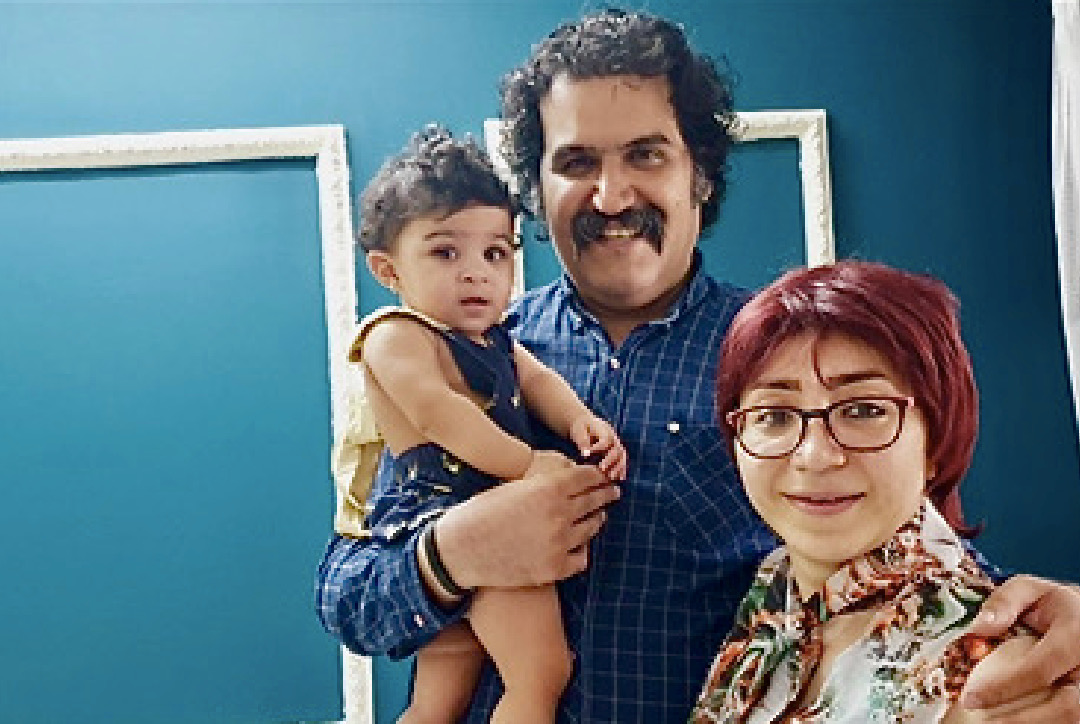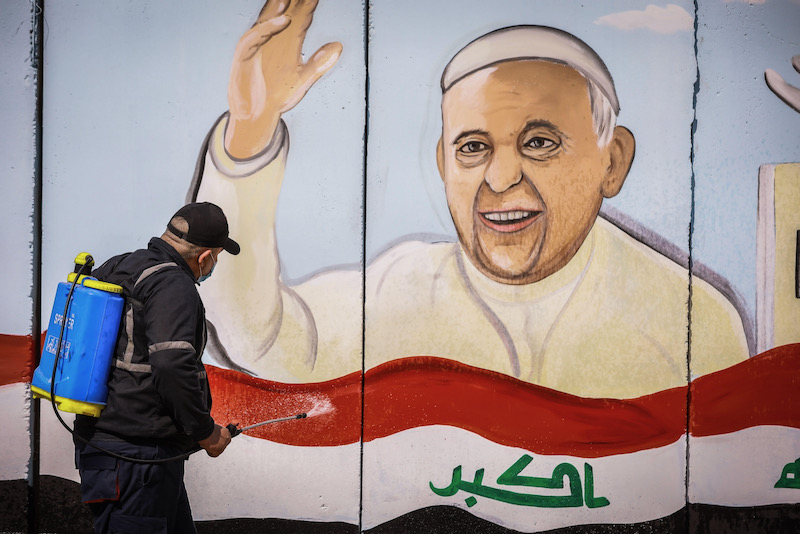Pope Francis’ visit to Iraq is the boldest and riskiest of his eight-year pontificate. Yet he knows that one of the rules of papal travel is that the more difficult the trip, the greater the impact.
It is in the countries that have suffered the most that people are in greatest need of the healing balm of a visit from the Pope. This is a motivating factor in Francis’ decision to embark on the trip despite some Holy See officials arguing privately that it might be wiser to postpone. Covid-19 cases are on the rise and rocket attacks have taken place just two days before Francis is due to board the papal plane. The Pope is also likely to use an armoured vehicle when he is in Iraq, something he’s never done before.
Given all this, I asked Holy See spokesman Matteo Bruni at a news briefing this week if this is the riskiest trip yet for Francis? “I wouldn’t get into a competition of riskiest journeys, but I would say this is certainly one of the most interesting,” he replied.
I will never forget witnessing the Pope embark on a similarly dangerous mission to the Central African Republic war zone in 2015, which, like his visit to Iraq, carried serious security risks. Despite the armed conflict, crippling poverty, a lack of infrastructure and an airport surrounded by a refugee camp, the papal visit was able, albeit briefly, to unite the country.
The 84-year-old Pope has always prioritised his voyages abroad according to the counties which are suffering the most. For years, the main news coming from Iraq has always been about war, bloodshed or Christians being forced to flee. Now, a papal visit, the first ever to the country, offers a ray of hope. Francis is also aware how disappointed many Iraqis were when John Paul II wasn’t able to make it in 2000; he knows there is never a perfect time to make a trip to Iraq, so he’s decided to seize the moment.
There are two areas where the visit is likely to bear lasting fruit. The first is Francis’ embrace of the ancient “martyred church” of Iraq in the land of the Bible. Christianity can be traced back to the Acts of the Apostles, with the “residents of Mesopotamia” listed as among the witnesses to the first Pentecost. Despite the rich heritage, over the last two decades the numbers of Christians have plummeted from around 1.5 million at the time of the 2003 Iraq war to less than 300,000 today.
The Pope’s trip will encourage the local churches, highlight the terrible persecution that has taken place at the hands of Islamic State extremists and might even encourage some of those who have fled to return. But that is only part of the story. Francis’ trip is also about holding up the example of Christians persevering in the face of suffering and persecution.
“We of the Eastern Churches in the countries of ancient Mesopotamia never enjoyed worldly splendour,” Cardinal Louis Raphaël Sako, patriarch and leader of the Chaldean catholic community in Iraq says. “The Church here has never been an imperial Church, or a State Church. Therefore the glory and beauty of this Church is within, it is in the life of the faith of Christians, and these martyrs, not only those of the past, but also those of today, sacrificed their lives for the love of Christ, they are our glory, and our beauty. They are our gift for the whole Church of Christ.”
Sako, who has been instrumental in making Francis’ visit happen, emphasises that “the Pope is not the commander-in-chief of an army” nor is he coming to “defend and protect Christians” or plead for special privileges. In other words, the Christian community in Iraq offers a witness to the entire church because it is living out this beatitude: “Blessed are those who are persecuted for righteousness’ sake, for theirs is the kingdom of heaven.”
Francis is going to Iraq with a message of unity and brotherhood for the whole of the country, and not just Christians. In the land of the Garden of Eden, the Great Flood and Abraham, he will recall that suffering has afflicted every community which makes up the rich tapestry of Iraq’s communities: Muslims, Jews, Yazidis, Zoroastrians.
Here we come to the second element of the trip with the potential for lasting impact, which is the meeting between the Pope and Ayatollah Al-Sistani, the world’s leading Shia authority.
It will be an historic encounter between two global religious leaders, and one that could only happen thanks to intense diplomatic efforts. The 90-year-old al-Sistani, who rarely meets foreign leaders, is often described as the most influential figure in post-invasion Iraq. While Sunni-Shia Muslim divisions have fuelled political tensions across the Middle East, al-Sistani has been a prophetic voice, pleading with his community not to respond with violence to extremists' attacks on them. He has appealed for Iraqis to support the Government against Islamic State (IS).
A meeting with Francis and the Ayatollah signals that without religious cooperation, efforts at peace in the Middle East are futile. Peace among nations is only possible when there is peace among religions.
The encounter also allows the Pope and the Holy See to build a broader relationship with the Shia Islamic world. Shi’ites are the dominant majority in Iran, a country so critical to world peace. When the Pope signed the landmark human fraternity document on Christian-Muslim relations in 2019 it was with the Grand Imam of Al-Azhar, a Sunni leader, and the vast majority of his visits to Muslim countries have been to Sunni-majority ones. Although speculation al-Sistani would sign the document appears unfounded, the meeting could spark new efforts to work for human fraternity with Shia Islam and it has been pointed out that Shia and Catholic theology have some common elements.
Although the Pope is putting himself in danger by going to Iraq, risk-taking must be written into the DNA of an apostolic and missionary church. The first Christians, faced with suffering and martyrdom, took those risks. St Paul was shipwrecked on one of his journeys. With this visit, Francis is once again holding up the model of early Christianity as one for today’s church to follow. This is a Pope who prefers a Church which is “bruised, hurting and dirty because it has been out on the streets”, instead of one “which is unhealthy from being confined and from clinging to its own security”.



 Loading ...
Loading ...
What do you think?
You can post as a subscriber user ...
User comments (0)